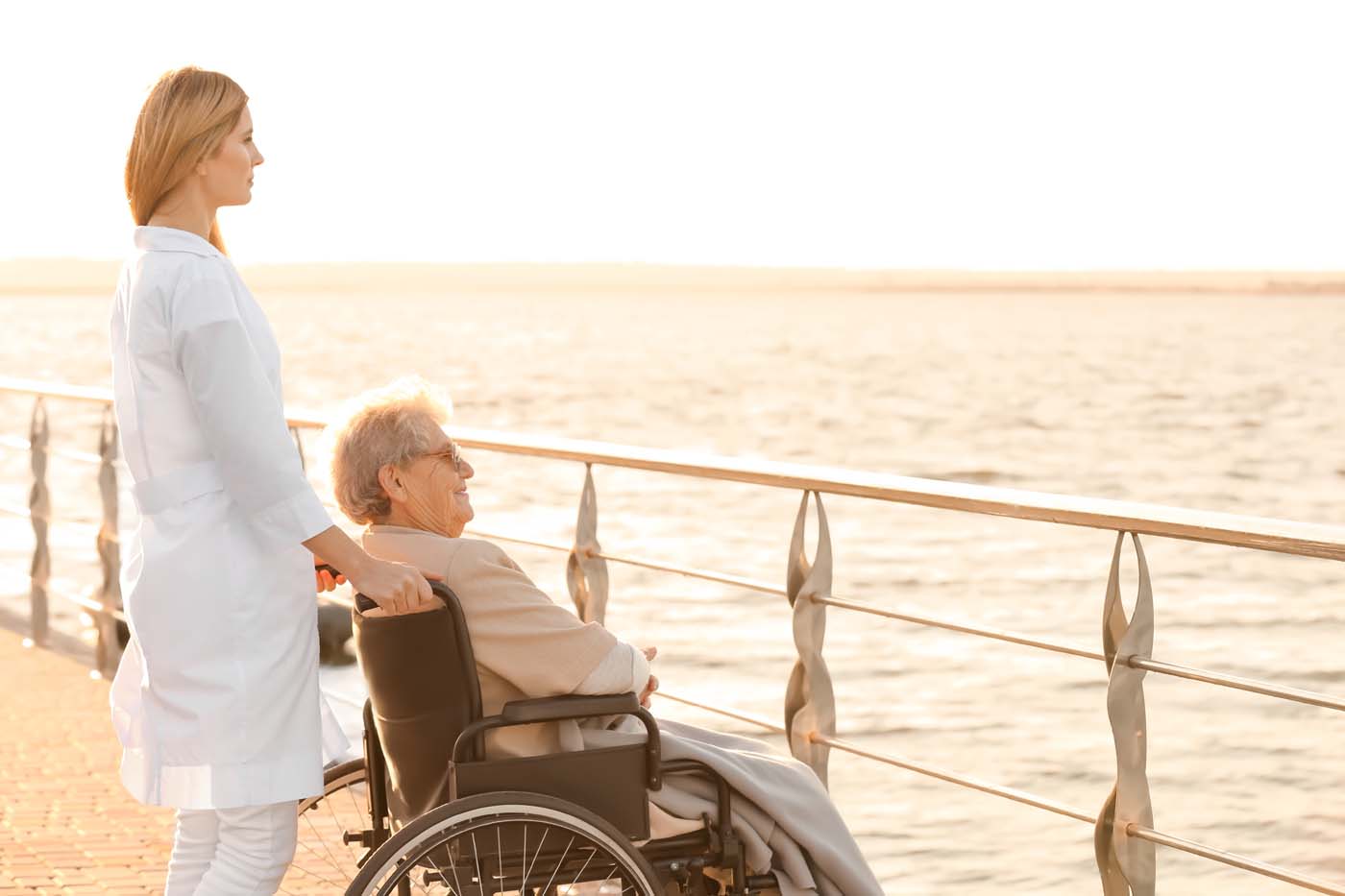Getting Out And About
A breath of fresh air
You never hear anyone talk about ‘The Great Indoors’ and there’s probably a good reason for that.
Spending time outdoors with elderly loved ones can be beneficial for you both, but the different challenges involved in taking them out for the day may seem daunting.
In this guide, we’ll give you a few ideas to get you started, and talk you through the considerations you might need to bear in mind ahead of your trip.
A Quick Guide
There’s nothing like fresh air and a stretch of the legs to recharge your elderly relative’s batteries. A walk through tranquil countryside or to a local beach is a great way to do just that, and one the whole family can enjoy.
Even if an older person’s mobility is limited, there are lots of websites dedicated to wheelchair-friendly walks, including Accessible Countryside for Everyone, Euan’s Guide, Walks with Wheelchairs and The Outdoor Guide. You’ll also find an accessibility guide on the government’s
national parks website.
Whatever sport an older person enjoys, all major venues should have support in place to cater for a diverse range of mobility needs.
The Queen Elizabeth Olympic Park in London, for example, was purpose-built for the 2012 Olympic Games and Paralympics, and has numerous accessible venues, including the Copper Box Arena and the London Aquatics Centre.
You’ll find other great suggestions for accessible venues – from cricket grounds to football pitches – on AgeUK’s dedicated page.
Keep in mind that if your relative have been diagnosed with dementia, they may struggle with the noise and amount of people. But there are often smaller, local sports events which might help you meet them in the middle such as smaller horse racing meets, tennis matches or local
football matches.
Local events like school fetes, food markets, car boot sales, and street parties are a great way for older people to stay connected to their community, and even make new friends.
Being close to home means that those who struggle with low energy or mobility can still do something a bit different, without the pressure of a full day out. To find events, keep an eye on local papers and Facebook groups. Most community events are arranged with accessibility in mind, but if in doubt, contact the organisers.
If you’re still short of inspiration for outings and fancy exploring a bit more, The Carers Trust charity has a list of ideas to act as a starting point, while OpenBritain provides a simple way to find accessible destinations and places to stay around the UK.

Planning ahead.
A successful day out with an older person or someone living with dementia will depend on thorough planning. There’s plenty of information out there to help support you, as long as you know what it is you need to think about. Take time to tick off the considerations below before any day out, and you’ll be safe in the knowledge all their needs are covered.
Travel
One of the most important things to know ahead of time is how you’re going to get to your destination. It’s worth staying fairly local if you can – at least for the first outing – to gauge how well they deal with the journey. Other things to consider when deciding on your route are whether there are any toilet stops on the way, and the time of day you’re travelling.
Accessibility
It’s important to check the accessibility of your proposed destination in advance. Websites like disabledgo.com and wheelmap.org list wheelchair-accessible places, or find specific information on websites, such as the RSPB or the National Trust and English Heritage both of which offer accessibility guides to their buildings and grounds. The Rough Guide to Accessible Britain is another useful resource.
Toileting
Take the time to research the toilet facilities at your destination, to avoid getting caught out on the day. It’s also worth joining the Radar Key scheme, which provides access to 9000 disabled toilet facilities in the UK. You can also get your hands on a National Key Scheme guide, which lists the location of every Radar toilet, and the mobile app, with walking and driving directions: both cost £5 each.
Food and drink
Most attractions have shops or a café, but be sure to take snacks and drinks with you as well. You don’t want to run the risk that it might be closed or unable to cater to any specific dietary requirements. You should be able to find information about menus and accessibility online, or by getting in touch with the destination directly. But you might just want to take a picnic to avoid questions of whether they’ll be able to provide what an older person needs and enjoys.
Download our brochure
Reading through our brochure together can be a useful way to start care conversations with your family or loved ones.
Do you have any questions?
If you have any questions about our care services or working with us, please do not hesitate to contact us by phone or email. One of our team members will be more than happy to answer any questions.
01452 345614
Southgate House, Southgate Street, Gloucester, GL1 1UB
Info@Multilinkcaremgmt.co.uk
Monday – Friday (8:00 AM – 5:30 PM)

